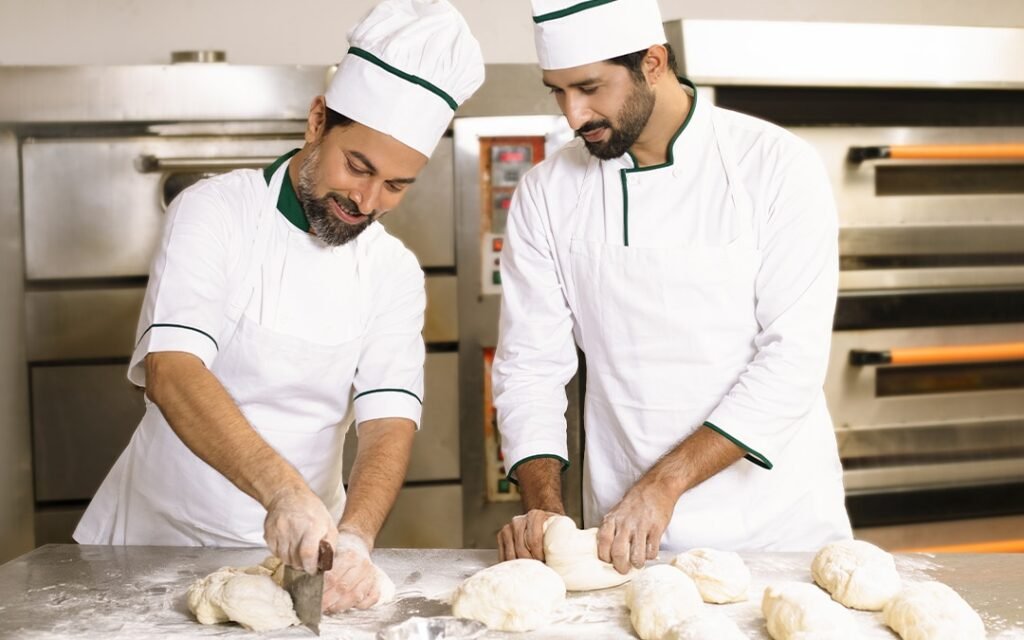Baking courses offer a transformative way to elevate your career in the culinary world. They provide hands-on experience, teach industry-specific techniques, and open doors to lucrative opportunities. Whether you’re a beginner or an experienced baker, these courses can shape your professional path and enhance your skills in a structured way.

1. Building Essential Baking Skills
Baking courses focus on developing core skills that are crucial in the culinary field. You learn techniques like dough preparation, cake decoration, and pastry creation under the guidance of experienced instructors. These programs also emphasize precision, time management, and creativity, all essential qualities for a successful career in baking.
Specialized courses often cover areas like artisan bread-making, chocolate tempering, and gluten-free baking, helping you cater to niche markets. By mastering these skills, you can position yourself as an expert in a specific baking style or product.
2. Gaining Industry Knowledge
Baking courses provide insight into the broader culinary industry. You learn about food safety, quality standards, and ingredient sourcing, which are critical for running a bakery or working in a professional kitchen. Courses often include lessons on menu planning, customer preferences, and pricing strategies, preparing you to meet market demands effectively.
These programs also introduce modern equipment and technologies used in commercial kitchens. Familiarity with these tools enhances your efficiency and competence, giving you a competitive edge in the job market.
3. Networking Opportunities
Enrolling in a baking course connects you with industry professionals, fellow students, and mentors. These connections can lead to internships, collaborations, or job opportunities. Many courses include guest lectures or workshops conducted by renowned chefs, giving you direct exposure to successful professionals in the field.
Networking during your course can also result in valuable partnerships. For example, you may meet someone who shares your vision for a bakery or pastry business, enabling you to collaborate and achieve your goals.
4. Enhancing Career Prospects
Completing a baking course enhances your resume and increases your credibility as a professional. Many employers prioritize candidates with formal training, as it demonstrates commitment and expertise. Certification from a recognized institution adds value to your profile, opening doors to roles such as pastry chef, bakery manager, or food entrepreneur.
For those aspiring to start their own business, a baking course equips you with the knowledge and confidence to succeed. You gain practical skills and business acumen necessary for running a profitable bakery or catering service.
5. Adapting to Market Trends
Baking courses help you stay updated with the latest trends in the culinary industry. You learn about popular techniques, such as vegan baking, low-sugar recipes, or sustainable practices. Keeping up with these trends allows you to meet customer demands and stand out in a competitive market.
For example, courses focused on dietary preferences can help you create innovative products like keto-friendly desserts or allergen-free pastries. By offering such items, you can attract a wider customer base and build a unique brand identity.
Conclusion
Baking courses provide a solid foundation for a successful career in the culinary industry. They develop essential skills, expand your industry knowledge, and enhance your career prospects. Whether you aim to excel in a professional kitchen or launch your own bakery, these courses can pave the way for your success.


The camera checks in fnaf 2 aren’t simply about monitoring moving robots. Each time you check, you’re not just observing, but also facing psychological illusions, small details that could save your life.